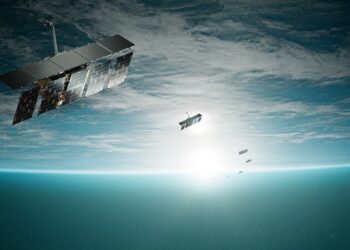WASHINGTON — The House Science Committee advanced four space-related bills March 20 addressing issues from commercial remote sensing to space resources.
The committee advanced the bills by unanimous votes during the markup session that also considered four other bills on unrelated topics. The bills now go to the full House.
H.R. 272, the Astronaut Safe Temporary Ride Options (ASTRO) Act, would formally authorize transportation for official duties for NASA astronauts once they return to Earth until they are medically cleared to drive. Currently, such transportation has to be approved on a case-by-case basis by the NASA administrator.
“When these astronauts return home, we must make certain they can recover and get back on their feet without red tape,” said Rep. Brian Babin (R-Texas), chair of the space subcommittee and sponsor of the bill, who said he introduced the bill after conversations with NASA astronauts.
H.R. 6219, the Accessing Satellite Data to Enable New Discoveries (ASCEND) Act, would formally authorize NASA’s commercial data acquisition program to purchase remote sensing data from companies for research purposes. NASA started a pilot program, the Commercial Smallsat Data Acquisition (CSDA) program, along those lines in 2017 that has since matured into an operational one.
“With new leadership and responsibilities for CSDA over the past year, it is an important time for Congress to reaffirm our support for this program by enacting this statute, this ensuring its continued growth and success,” said Rep. Tom Kean Jr. (R-N.J.), lead sponsor of the bill.
H.R. 7687, the NASA Streamlining Partnerships for Research and Education for Engineering and Science (SPREES) Act, would allow NASA to jointly fund research with other federal agencies for science, engineering and education programs, one modeled on existing authorities held by the National Science Foundation.
“If NASA were to attempt this today, both agencies…
Read the full article here


